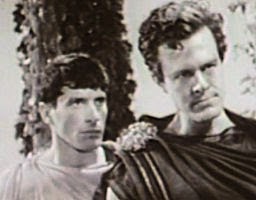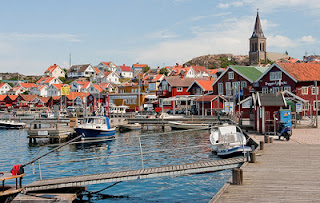 |
| Nook |
No! I've been reading all along. It's just that the last few things I've read were on my Nook. Somehow, finishing a book on the electronic tablet makes it difficult to write about. I have no idea why, but I don't have a book to look at and refer to when I want to write about it.
For instance, I read
The Last Detective by
Peter Lovesey.
Lovesey had been recommended by someone somewhere and I began with his 1991 novel. It's about a detective working in England at the beginning of the era of computerized record keeping. He, of course keeps insisting that good old-fashioned human detecting is better.
I have vague, rather fond memories of the book.
Then I read
The First Patient by
Michael Palmer. It's a story about a doctor in rural Wyoming with guilty secrets who is asked by a college friend, who was president of the USA, to come to Washington to be his personal physician. That's about all I remember. When I looked up
Michael Palmer, a physician who wrote novels, I learned he died last month.
I read a short story by
Connie Willis called
All Seated. It was a semi-amusing science fiction story about first contact.
Then I read another
Willis story called
D.A. It was more interesting and posed a clever question: How do you recruit loyal, but skeptical members to a national security organization. It was written in 2007, well before Edward Snowden.
Dana Stabenow describes
Conspiracy as an extended character sketch of a few recurring characters in her Kate Shugak novels. Yep.
I read
James R. Benn's Billy Boyle, A World War II Mystery. Some of it takes place in Norway.
I read
Edwin of the Iron Shoes by
Marcia Muller. It takes place in a couple antique stores. Talk about a "cozy."
Then there was
Deadly Stillwater by
Roger Stelljes. The Stillwater here is a town in Minnesota, not a placid pond. It was a good mystery about a a St. Paul detective trying to find a kidnap victim, who is the daughter of the capital city's wealthiest and most successful lawyer. Good action scenes and well described detective work. I liked reading this one.
Oh, and
Kate Atkinson took me in again. I've thought some of her books were fantastic. In
Life After Life, she trots out seemingly endless story lines about versions of life and death of her main character. I looked up the
New York Times review to remind me of the book since I'd done my best to forget it
. That's why I can tell you that much about it. I did not enjoy slogging through a book when I had to start over every few pages.
I read
Mark Shroeder's The Book of Margery Kempe. (I think Dale Stahl recommded some version of this.) There are several versions, including an alleged autobiography of this 14th century mystic from England. It bears resemblances to
Life After Life.
I've now read everything on the Nook except
Pride and Prejudice and
A Beacon so Bright, a Biography of Laurence McKinley Gould. Gould was a president of Carleton College in the '50s and early '60s. The biography was written by the college archivist. Nancy edited it and saw to its conversion to an e-book, which is why it's on the Nook.
Now to real books.
 |
| Schwebebahn car |
A long time friend who teaches English in the picturesque German town of
Wuppertal was in Scotland last summer. (Two special attractions of Wuppertal to me were the
Schwebebahn and the
Engles family factory museum. Yes, Karl Marx's writing partner grew up in Wuppertal and the family business helped support Marx during his years of thinking and writing.)
In any case, while in Scotland, my friend ran across
Glencoe and the Indians by
James Hunter.
Hunter is a Scot who was intrigued by the fact that Highlanders left Scotland to become fur traders in what is now Montana and Idaho, some working for the Hudson Bay Company and others for competing American companies. Not only that, there's a major
 |
| Lake McDonald |
lake and mountain in Glacier National Park named McDonald, after one of those Highlanders. Add to that bits of anthropology, sociology, and politics that help compare how the English treated the Highlanders and how the European immigrants in the USA treated the native peoples in places like Montana and Idaho. Oh, and lots of people and nearly all the political leaders of the Salish tribe in Montana are named McDonald. Astrid knew I'd be interested and sent me the book.
If only
Hunter hadn't written the book like he had to tell all the stories at once. There's hardly a paragraph that doesn't include one, two, or three parenthetical back or side stories before reaching its conclusion (see above where I begin to write about how I got the book and got sidetracked with the Schwebebahn and Fredrick Engels). I skipped a lot of those asides. The idea of the book was more interesting than the book.
However,
Hunter does conclude that the Highlanders, given the social safety net the UK, came out of their domination by the English better than the native peoples of Montana and Idaho came out of their domination by Americans. Nowhere in Scotland, is there poverty like that on the reservations of those American states.
Finally, there's
Qiu Xiaolong's Enigma of China.
Qiu is an immigrant to the USA. He's a poet and the author of eight mystery novels featuring Shanghai detective Chen Cao. The Shanghai settings are contemporary, so the city is practically alive with growth and change. At the same time, Detective Chen is an assistant Party Chairman in the police force, and the Party works assiduously to maintain its power and position in the face of change its leaders have set in motion.
 |
| BMW Shanghai cruiser |
The plots of
Qiu's novels always involve some of the conflict between the inertia of change and the inertia of stability and between rule of law and corruption. Some of his novels have been published in China after being "harmonized" to erase those contradictions. This one won't be. The contradictions are too central to the plot. There's no way to erase the political influences on the central death, supposedly a suicide. There's no way to exclude the corruption, big and small, that pervades the story. Even the main character rationalizes his way into accepting favors large and small. And at the end apparently accepting a promotion to a high level job in Beijing.
It's a well-told story that holds together. It might help if you're a bit familiar with Chinese politics and know what "socialism with Chinese characteristics" refers to, but the story is universal enough to entertain most everyone.
I highly recommend it. I've read a couple other Detective Chen mysteries and they were good too.
Write and tell this little bit of the world what you think of these or other books you've read.




































